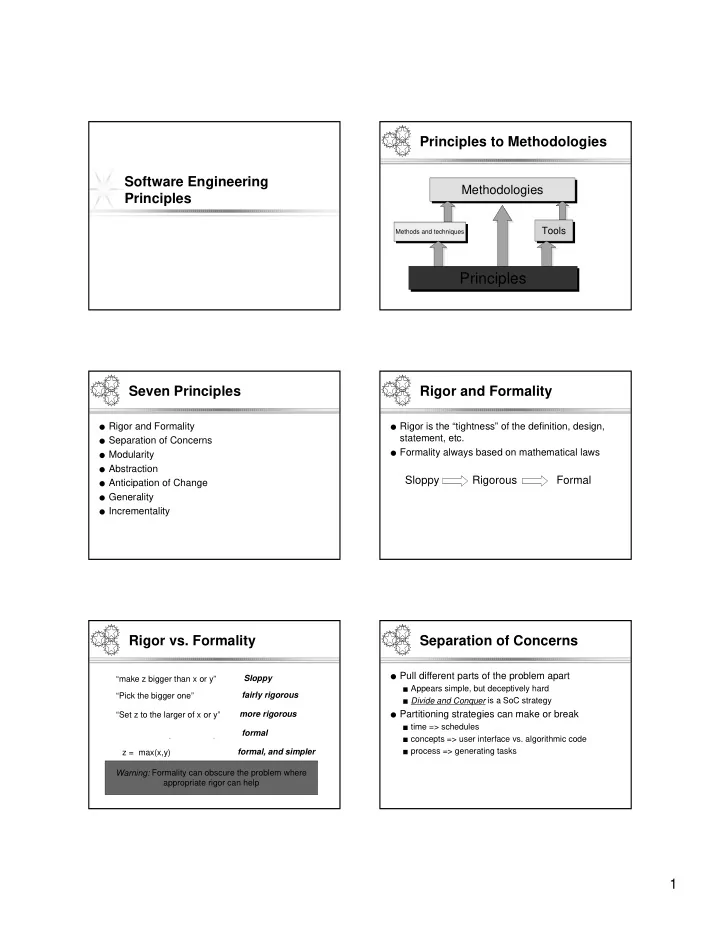

Principles to Methodologies Software Engineering Methodologies Principles Tools Methods and techniques Principles Seven Principles Rigor and Formality ● Rigor and Formality ● Rigor is the “tightness” of the definition, design, statement, etc. ● Separation of Concerns ● Formality always based on mathematical laws ● Modularity ● Abstraction Sloppy Rigorous Formal ● Anticipation of Change ● Generality ● Incrementality Rigor vs. Formality Separation of Concerns ● Pull different parts of the problem apart Sloppy “make z bigger than x or y” ■ Appears simple, but deceptively hard fairly rigorous “Pick the bigger one” ■ Divide and Conquer is a SoC strategy more rigorous ● Partitioning strategies can make or break “Set z to the larger of x or y” ■ time => schedules formal ( ) z ≥ x ∧ z ≥ y ∧ z = x ∨ z = y ■ concepts => user interface vs. algorithmic code formal, and simpler ■ process => generating tasks z = max(x,y) Warning: Formality can obscure the problem where appropriate rigor can help 1
Modularity Complexity Reduction ● Divide complexity into simpler, but rational, pieces ● Related to SoC ● Complexity reduction ■ Increases chances of understanding complexity ● Most modern technology built on this principles ● Raises the issue of interface Got all interactions? 6+5+4+3+2+1=21 Effect of Simple Module Abstraction ● Stripping away what’s not important ● Implies KEEPING what is important ● Essential principle in modeling ● Takes practice -- Few people do it well. 6+1+3=10 Anticipation of Change Generality ● This applies to the software product, not the ● “Backup” to a “higher” view to find the bigger methods (usually… see? I’m anticipating change ) problem that covers this problem ● It’s going to change, so build it in from the start ● Plays into modularity ■ Not free… takes effort and cost ■ Modularity uses generalization to group functions ◆ This implies there is a trade-off between flexibility and ● Draws on abstraction cost/effort ■ Have to see the essentials of the problem ● Minimum: Wandering requirements ● As usual, requires trade-offs ● Maximum: Reusable components 2
Incrementality ● The idea of proceeding in steps ● Requires separation of concerns to break problem down into steps ● Evolutionary approach to design ■ prototypes 3
Recommend
More recommend